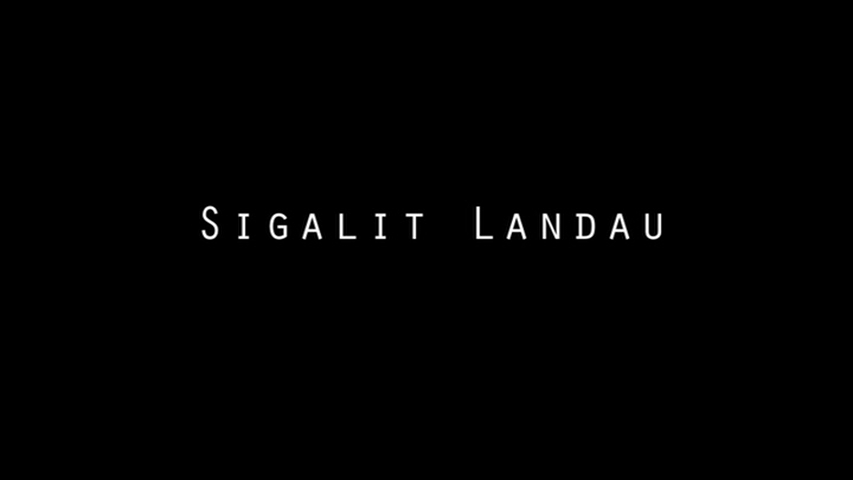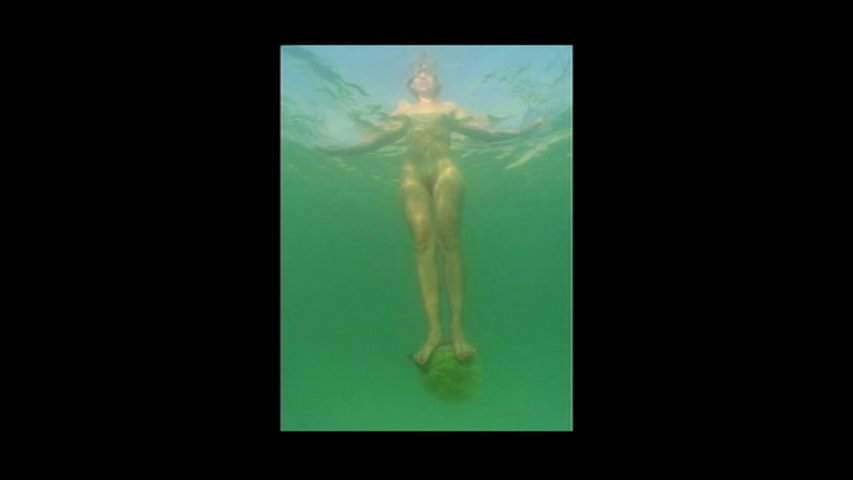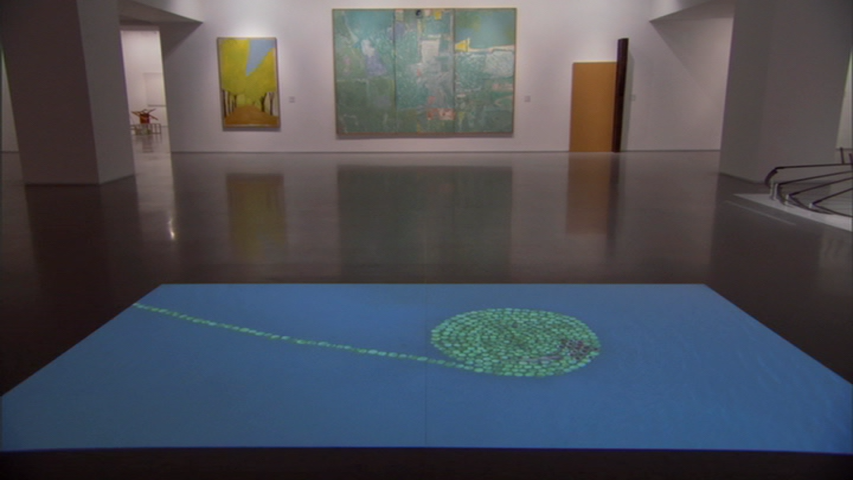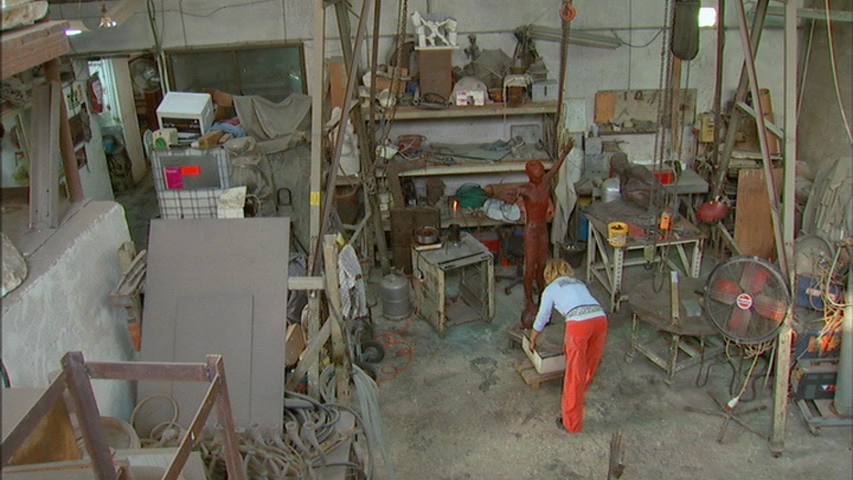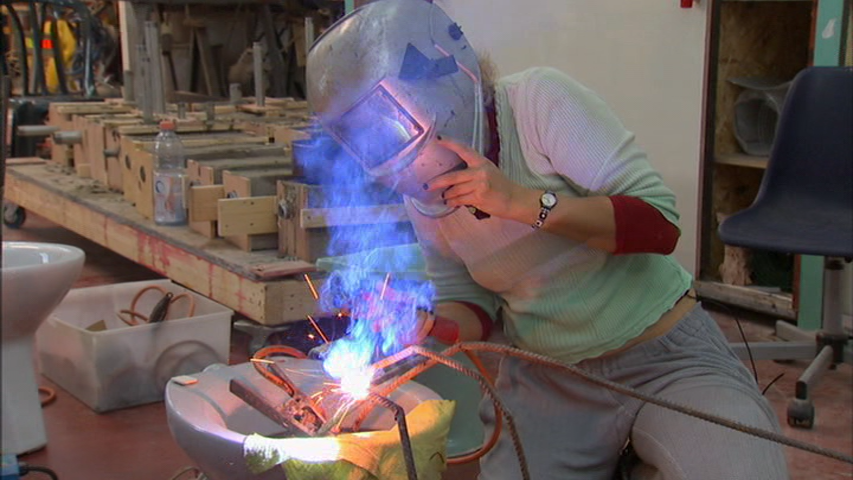Sigalit Landau sculpting a wax casting
Sigalit Landau works in a range of media and modes, from sinewy sculptures of elongated human figures to conceptual videos and films to massive installations. A former dancer, the artist is closely attuned to corporeality: she engages the idea of the body in nearly all her work. In one of Landau’s most striking videos, Dead See (2005), her own body becomes part of a dreamlike form floating in the salt-saturated waters of the Dead Sea: a spiral raft made of watermelons, threaded together like massive green-and-red beads, and her naked self.
“I like to be on the periphery…if I had to make a choice, I would choose to be here.”
Among the artist’s enduring and elemental fixations are water, sugar, meat, earth, and in particular salt. She has long planned to build a bridge of salt between Israel and Jordan, and for her 2016 project Salt Bride, she submerged a replica of a traditional Hasidic dress in the waters of the Dead Sea—no easy feat given the mineral-dense water’s buoyancy—the garment hovers there like a specter. “Salt heals, preserves, hides, kills,” Landau has said. And of the Dead Sea, which has provided her with such inspiration, she observes, “[It] has myths and (pre)history all around its shores, stories of radicalism, Christianity, heroics, unbelievable agriculture—and it is a border as well, so the behavior of salt and the natural environment is highly metaphoric, and keeps changing direction as I experiment.”
Israel is a very small country, and the number of major art venues is limited. “Many very good Israeli artists are living abroad,” says Landau. Why does she stay? “I like to be on the periphery, for various reasons. If I had to make a choice, I would choose to be here.”
It is perhaps inevitable that an Israeli artist will make work that engages society and politics, whether obliquely or directly. Artists have an advantage over politicians, as Landau eloquently observes: “Through politics you can show bottom lines. But bottom lines are never good. Through art, you can show much more complex things.”
These stills are from the film Out in the World, available with the purchase of The Desert and the Cities Sing: Discovering Today’s Israel.


